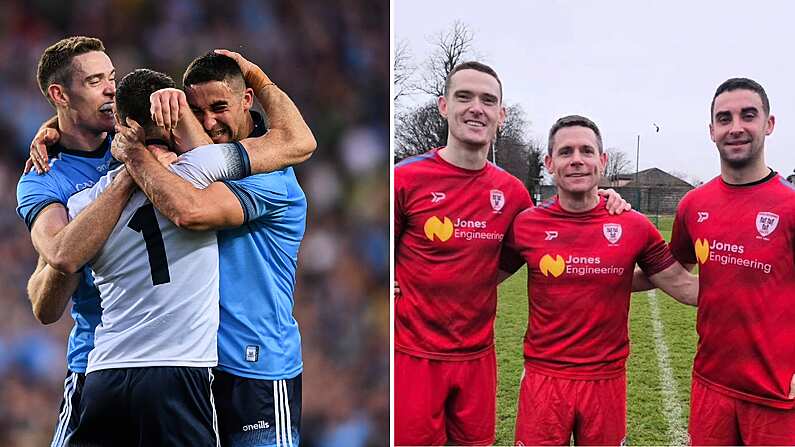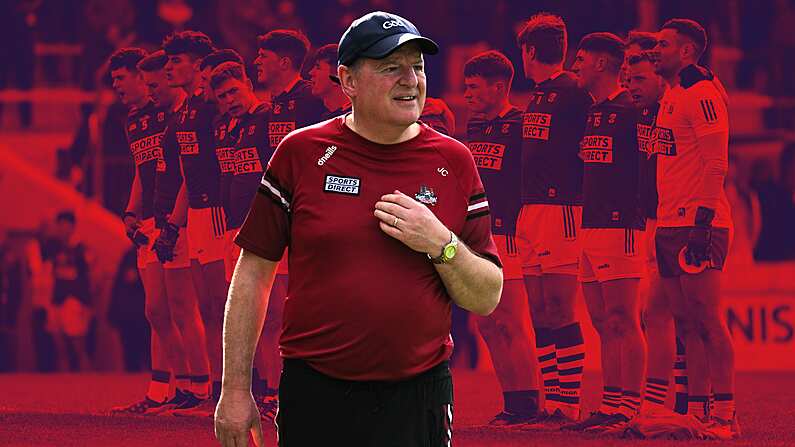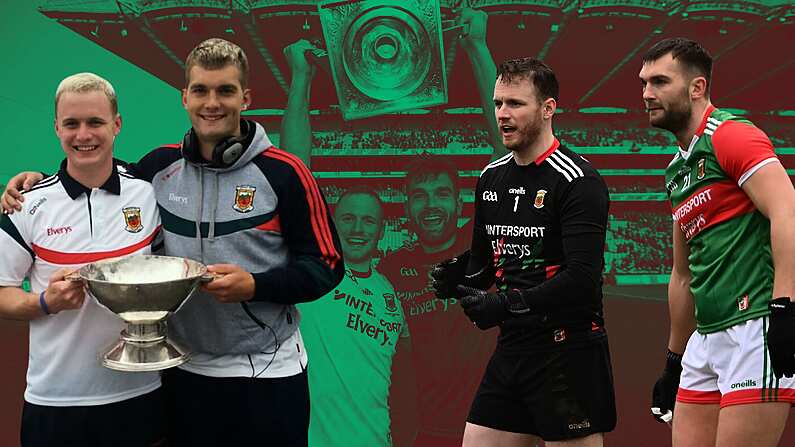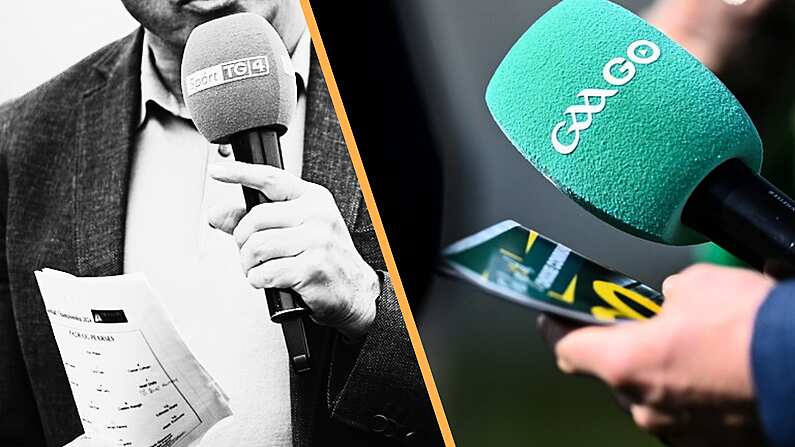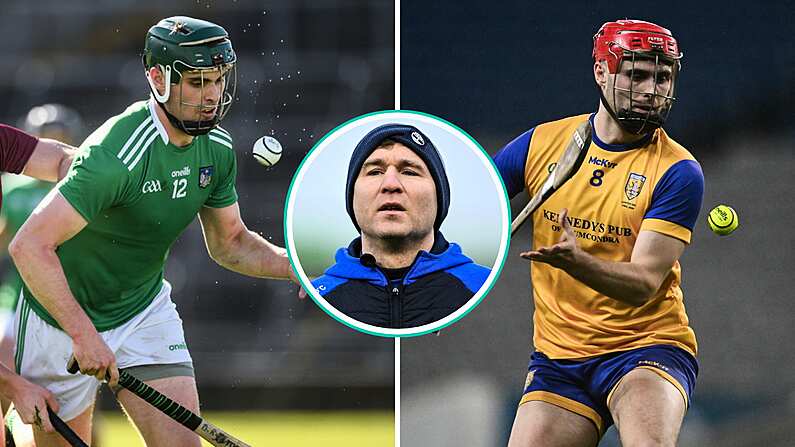When Matthew Twomey's children were younger, the family would drive past a wind farm and the former Cork camogie manager would be able to tell them that Irish Pioneer Works, the company started by his late father Matt and others started nearly 40 years ago, provided the steelwork.
"It's a nice way to have it," Twomey, the PwC Camogie Manager of the Year, tells Balls.
"Back then, they took a massive risk. They put everything they had up to buy the place. There is a huge amount of pride.
"Coming in here as a young lad in 1984, I was 10. A lot of the stuff now would be operated by machines, which would do four or five different operations. We'd still have forges here.
"Back then, the smell of the place, the steel and oil, it would always stick with me. Coming in here first, I was a whippersnapper looking at the size of the machines and the noise. It was unbelievable."
Twomey now runs the steel fabrication and galvinising company, based near the Kinsale Road roundabout in Cork, along with John O'Rahilly, Mick Roche and his brother Tomás.
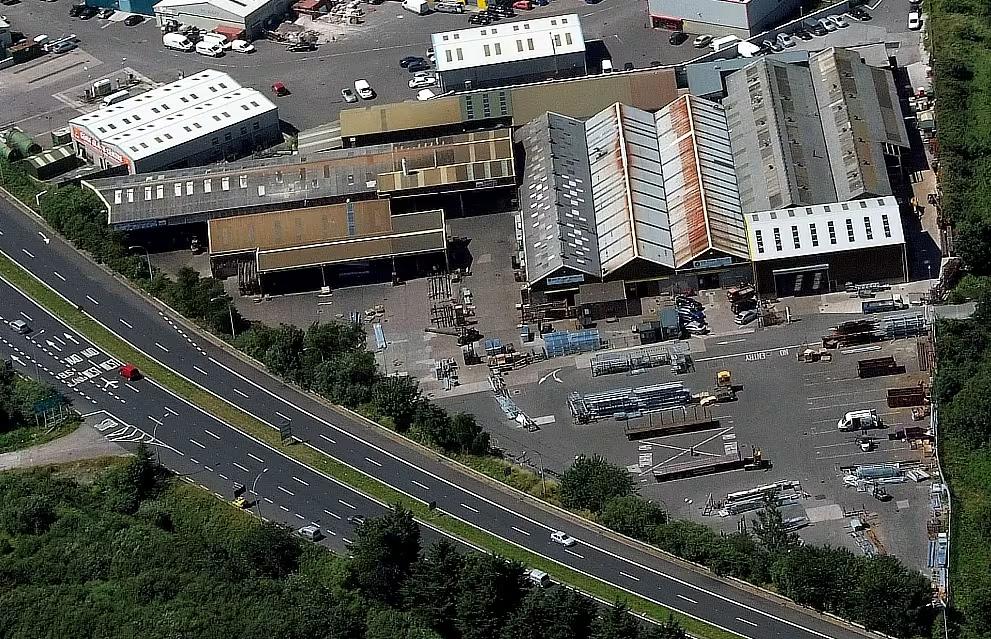
Aerial view of the Irish Pioneer Works site. Photo: Irish Pioneer Works
"We have a lot of strains to it but our main source of business would be the utility sector," says Twomey.
"Our biggest customer is the ESB in Ireland, and then in the north of Ireland, NIE, and in the UK we deal with Scottish Power. We do all their steel work and steel parts like nuts and bolts.
"Because we have a good relationship with the ESB, the renewable of side of things, wind farms and solar farms, we supply all the steelwork for contractors who do all the work for them. We do a lot of substation steelwork and overhead lines.
"A lot of structural companies around Ireland would come to us to be a subcontractor. We have the galvanising plant as well. It could be anything - sheds, gates."
READ MORE: The 2013 All-Star Hurling Team: Where Are They Now?
READ MORE: The Camogie, Gaelic Football And Hurling Business All-Star XV
Twomey's main role is in purchasing but he's also production manager.
"When we're busy, we fall in wherever [needed]," he says, nearly 30 years on from starting full-time with the business.
"You might be upstairs in the office. You could be found anywhere, which I suppose makes the job that bit more interesting as well."

2023 Glen Dimplex All-Ireland Senior Camogie Championship Final, Croke Park. Cork manager Matthew Twomey celebrates with players after the victory over Waterford. Mandatory Credit ©INPHO/Bryan Keane
The business has grown "massively" since it was first established and now employs 90 people.
"People are born for this type of work," says Twomey.
"You either have it or you don't. Working here isn't going to be suitable for a lot of people.
"We made investments to buy the land around us to expand, [to accommodate] the amount of steel and the artic trailers. A lot of the machinery has gone automated, compared to before where it was all manual.
"My brother Tomás would have been pushing that for all the new machines. We just bought one there this year and it just chews up the steel.
"Buying that machine this year was a big investment, you have to keep doing that. We're good where we are at the moment. There will be a lot more investment put in over the next five to ten years. If we can keep the business going the way we have it, we'd be very happy."

9 April 2022; Cork manager Matthew Twomey before the Littlewoods Ireland Camogie League Division 1 Final match between Cork and Galway at Croke Park in Dublin. Photo by Piaras Ó Mídheach/Sportsfile
When Matt Twomey died nine years ago, Matthew's role within the company changed. He had to take on more responsibility. It led to him being a more serene presence both in the business and when he was managing teams.
"Before, when I was on the sideline, I would have been hyper," he says.
"You can't run a business like that. I educated myself that way, to remain calm and take a breath.
"I have no qualms in saying it. I'm much calmer on the sideline now. I take things in rather than being reactive. It has been said to me that I look calm. I'm not calm inside but I'm portraying calm which is good."

2023 Glen Dimplex All-Ireland Senior Camogie Championship Final, Croke Park. Cork players celebrate with the O’Duffy Cup. Mandatory Credit ©INPHO/Bryan Keane
In early September, a month after managing Cork to their first All-Ireland senior camogie title since 2018, Twomey stepped down after two years in change. Balancing work, family and camogie had been "extremely tough".
"It would have been tougher on the likes of my brother Tomás," he says.
"He would have taken a lot of the load off me. That's the reason why the two-year stint was a two-year stint."
Just as running a business helped him on the sideline, being on the sideline has helped him in running a business.
"Being manager for the last two years and seeing the time involved in it, you have to be very constructive with your time," he says.
"When the camogie stopped, you're saying that you could be more constructive with your time inside here as well. It's vital.
"I'd have a little notebook, taking notes, when I was with the camogie, and then you'd be saying, 'Why am I not doing it in work?' It's simple things like that."








